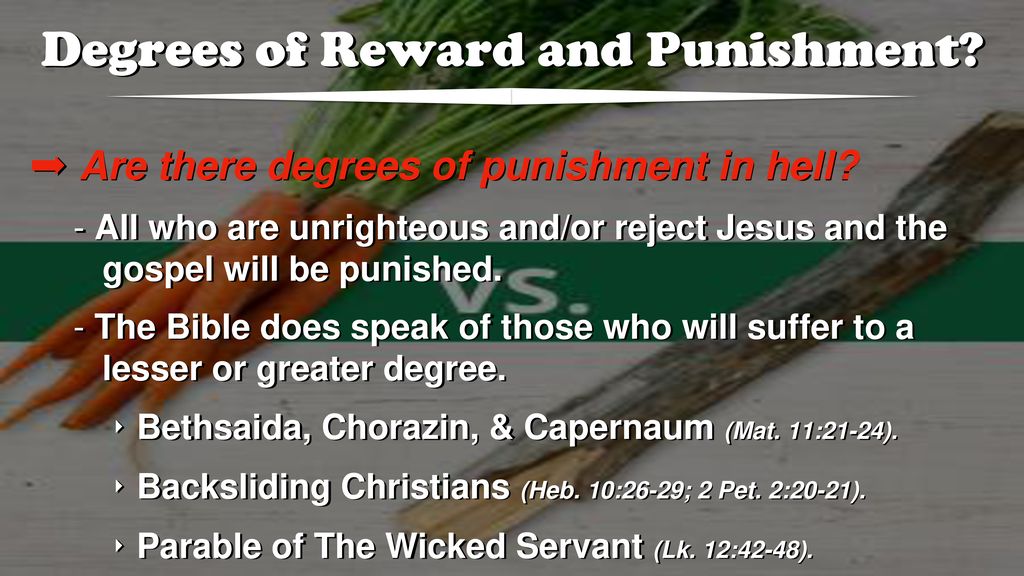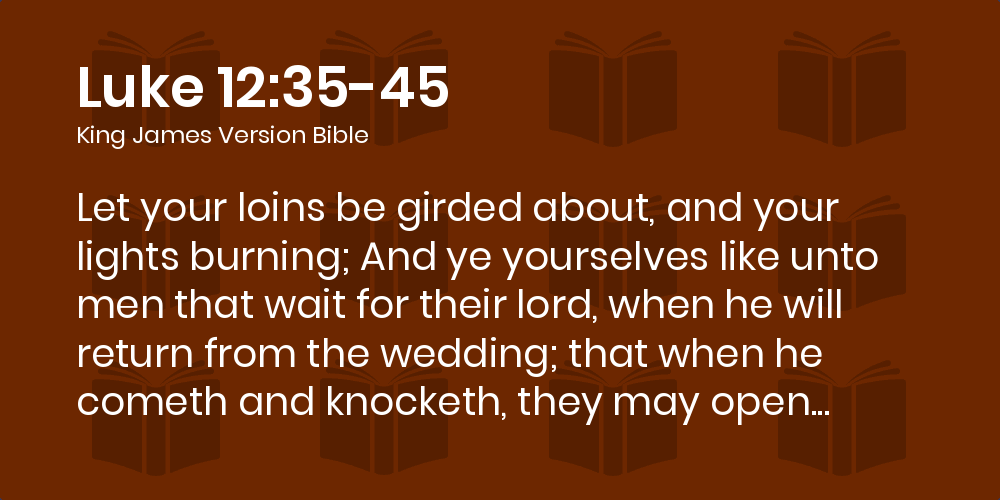Thus far we have established the fact that -
1. There is an afterlife for the spirits of the departed dead
2. There is a future resurrection for the bodies of the dead
3. Between death and the resurrection a person is in an intermediate state
4. Before the death and resurrection of Christ all dead souls went to the Underworld
{This is the teaching of the old testament and of most ancient civilizations. All departed spirits went to Sheol (Hebrew) or Hades (Greek), which refer to the same place (Hades is the new testament word for the Hebrew word Sheol) and this is generally defined as "place/world of the dead."}
5. The place of the departed spirits of the dead (Hades) was a place of rest and delight for the righteous and a place of torment for the unrighteous
6. Christ descended into Hades in his disembodied spirit when his body died
7. Christ emptied Hades of all the righteous dead so that Hades now is the place where only the unrighteous dead go
8. Christ became the forerunner into the "third heaven," or "Paradise," being the place where the righteous now go in spirit when they die.
We also looked at some important biblical texts concerning the afterlife and resurrection. We also saw how the bible does not teach soul sleep nor soul annihilation, or the views of the Sadducees. We saw how the bible taught the immortality of the soul, a belief also held to by such Pagans as Greek philosopher Socrates. We also saw how the bible taught the doctrine of punishment in the afterlife, even of eternal punishment. In this chapter we will discuss whether there be degrees of punishment in Hell.
Questions
1) How can there be degrees of punishment in Hell when it is equally "eternal" for all? If all are equally in the fires of Hell, how then can one be more in the fire than others?
2) Since each doomed soul has lost all good, how then can any single one have more or less good than another? Does "eternal" not only designate the duration of the ordained punishment but the quality of that punishment too? So that "eternal punishment" includes also the idea of "infinite in kind and degree"?
3) The words of James 2: 10 enter into the discussion of this question. "For whoever keeps the whole law but fails in one point has become guilty of all of it." (Jam. 2: 10) Does that not say that all are equally guilty?
4) Does it not seem that there cannot be degrees of punishment since all are receiving the nth degree of suffering?
5) Do not the scriptures imply that the punishment received in the day of judgment is proportionate to the degree of sin committed?
6) Do the prisoners of Hell not get some good out of conversing with their fellow prisoners? Or, will they all be in "solitary confinement"?
Let us begin our investigation into possible answers to these questions by city from Got Questions Christian web page (here), where they say (emphasis mine):
"The idea that there are different levels of punishment in hell is graphically portrayed in The Divine Comedy, written by Dante Alighieri between 1308 and 1321. In that poem, the Roman poet Virgil guides Dante through the nine circles of hell. The circles are concentric, representing a gradual increase in wickedness, and culminating at the center of the earth, where Satan is held in bondage. Each circle’s sinners are punished in a fashion befitting their crimes. Each sinner is afflicted for all of eternity by the chief sin he committed. According to Dante, the circles range from the first circle, where dwell the unbaptized and virtuous pagans, to the very center of hell reserved for those who have committed the ultimate sin—treachery against God."
Are there nine levels (floors) in the Underworld of Hades as Dante envisioned? Who knows for sure? That there are levels we have already established. Recall that "Tartarus" was the lowest level of Hades and this is where the fallen angels are kept chained. Further, we saw where Lazarus and Dives were on different levels, Lazarus being on the higher side of the gulf and Dives on the lower side. That is at least three levels. Whether sinners in Hades (or finally in Gehenna) suffer particular punishments for particular characteristic sins as envisioned by Dante, one cannot say for sure.
The article continues:
"Although the Bible does not specifically say there are different levels of punishment in hell, it does seem to indicate that the judgment will indeed be experienced differently for different people. In Revelation 20:11–15, the people are judged “according to what they had done as recorded in the books” (Revelation 20:12). All the people at this judgment, though, are thrown into the lake of fire (Revelation 20:13–15). So, perhaps, the purpose of the judgment is to determine how severe the punishment in hell will be."
I agree with that, but affirm that it still does not answer all the questions raised about the chief question, as enumerated above. Further, if "the day of judgment" in the passages at the heading of this post/chapter refers not to the final great white throne judgment after the Millennium but to that period of time described in the Apocalypse that John the apostle wrote, of the tribulation years of that prophetic "day" of wrath associated with the coming of the "presence" of Christ, then it would not necessarily apply for eternity. During the day of wrath (spanning the years of the Book of Revelation or time of "great tribulation") it will be harder on some nations, cities, and towns, than for others. I believe that both are no doubt true.
There will be degrees of punishment in the day of judgment that precedes the Millennial reign of Christ and there will be degrees of punishment decreed for those to be condemned to eternal torment at the great white throne judgment (Rev. 20) that follows the Millennium. But, I would not be too dogmatic on the point. We still need to answer the questions raised in our minds by such a belief, which I will do in the next chapter.
The article continues:
"A clearer passage is Luke 10, where Jesus speaks of comparative punishment. First, Jesus says this about a village that rejects the gospel: “I tell you, it will be more bearable on that day for Sodom than for that town” (verse 12). Then He speaks to Bethsaida and Chorazin: “It will be more bearable for Tyre and Sidon at the judgment than for you” (verse 14). Whatever punishment the former residents of Sodom, Tyre, and Sidon were experiencing in hell, the Galilean towns that refused to hear Christ would experience more. The level of punishment in hell seems to be tied to the amount of light a person rejects."
The question here is what is meant by "that day"? The question depends on what is intended by "the judgment" or "day of judgment" or "that day" in those passages, as we just noted. The words highlighted in red above also seems to me to be the truth.
The article continues:
"Another indication that hell has different levels of punishment is found in Jesus’ words in Luke 12: “The servant who knows the master’s will and does not get ready or does not do what the master wants will be beaten with many blows. But the one who does not know and does things deserving punishment will be beaten with few blows. From everyone who has been given much, much will be demanded; and from the one who has been entrusted with much, much more will be asked” (verses 47–48)."
I believe this is one of the best proofs for the idea that there will be degrees of punishment, and perhaps of kinds of punishment. The punishment is proportionate.
It also seems just and right. A young man who dies in unbelief and impenitence and yet who was not overly sinful through immoral conduct should not suffer more than say Stalin, Hitler, or Mao, or Judas.
In an Internet article on our subject I found this article - "Are There Degrees of Sin and Punishment in Hell?" by Mary Fairchild (here). She offers insightful thoughts on this area of our subject and in answer to her question (emphasis mine):
"That's a tough question. For believers, it stirs up doubts and concerns about the nature and justice of God. But that's precisely why it's a great question to consider. A 10-year-old boy in the scenario brings up a topic known as age of accountability, however, we'll save that for another study. The Bible gives us only limited information about Heaven, Hell, and the afterlife."
I certainly agree. It is indeed a great question for us to muse upon and we should be thankful for the information God has revealed to us, limited as it is now. Further, curiosity in itself is not always a bad thing as respects bible study. How many sinners have been saved and converted by picking up the bible for the first time out of curiosity only to end up believing it? How many sinners have come to church or camp meeting out of curiosity and left born again? Yes, "curiosity can kill the cat" but not always. God has his "secret things" and these are things he has not revealed (as the text says - Deut. 29: 29) and we should not pry into those things. We ought not to be given to speculation but be moderate (for all speculation is not bad either). But, who can help but be curious about eternal punishment and the justice of God in the day of judgment?
She wrote further:
"There are some aspects of eternity we'll never fully understand, at least on this side of Heaven. God simply has not revealed everything to us through Scripture. Yet, the Bible does seem to suggest varying degrees of punishment in Hell for unbelievers, just as it speaks of different rewards in Heaven for believers based on deeds done here on earth."
I do agree that this is the teaching of scripture.
She wrote further:
"The Bible does not expressly state that a person's punishment in Hell is based on the seriousness of his or her sins. The idea, however, is implied in several places."
I again agree and believe that the scriptures typically cited to prove it, as at the heading of this chapter, and in those referred to under its head, do indicate it.
In the next chapter we will continue our look at this aspect of our subject of the afterlife.



